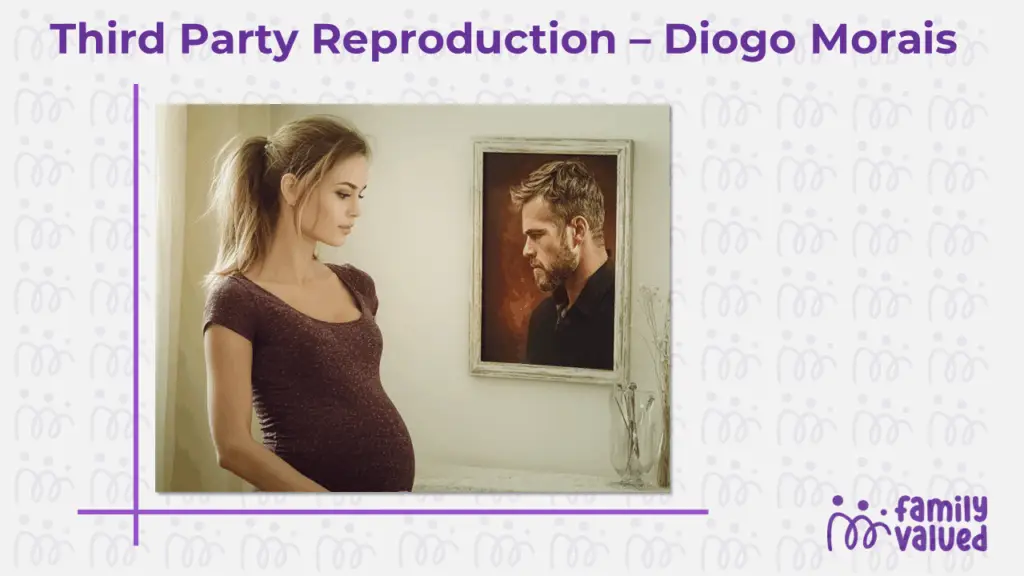Source „All you need is (somebody´s) love “third-party reproduction” and the existential density of biological affinity” 2024 of Diogo Morais Sarmento Madureira, Author of “The family in the postmodern revolution”.
In his article, Diogo Morais Sarmento Madureira offers an ethical and philosophical analysis of third-party reproduction, focusing on sperm donation and the implications of donor anonymity. He challenges the increasingly dominant narrative in Western legal and ethical discourses that prioritises affective relationships over biological kinship, often encapsulated in the slogan “all you need is love.” While such narratives seek to legitimise family structures built solely on social or intentional bonds, the author argues that this approach neglects the existential significance of biological origins for the individual’s identity formation, personal development and moral grounding.
Drawing on philosophical anthropology, legal theory, and political philosophy, the article emphasises the concept of “existential density”—the idea that biological lineage is not merely a genetic fact but a source of narrative, continuity, and personal depth. Madureira critiques the institutionalisation and normalisation of sperm donation, especially — but not exclusively — anonymous sperm donation, which he sees as a form of state-sanctioned biographical amputation. This, he argues, undermines the child’s right to access fundamental knowledge about their origin—not only as a matter of curiosity but as a matter of dignity, self-knowledge, and moral justice.
An essential part of his argument revolves around the idea that to grasp the full measure of one’s existence, one must first inherit the living memory of one’s parents — for in their stories lies the point de repère from which the self can truly locate itself in the world. Closely bound up with this argument is the notion that the love of a mother and a father cannot be fully transmitted; for beyond partaking in the inalienable and indivisible nature of love — which, by its very essence, does not exist in the abstract and only takes form when directed toward a concrete object (person) — the love of mother and father is truly intimate and personal. The lack of such love is not felt in the same way as the lack of love from any other person, even if a person has never known her biological parents or has been very loved by others around her. As stated by the author in Portuguese, “um amor que importa, que não se importa” (literally, a love that matters, that cannot be “imported”)
A particularly sharp critique is aimed at legislative developments that effectively eliminate the right of donor-conceived individuals to know and be raised by their biological parents for no other justification than the will of the latter to be absent and even anonymous. The author contends that such laws shift the legal system’s protective function away from the child and toward the reproductive autonomy of adults, framing procreation as a contractual, desire-based enterprise rather than a relational responsibility. In doing so, they erase the “face of the father” from the legal imagination and normalise a form of existential disconnection – a phenomenon more readily associated with the nineteenth century, and one which was finally laid to rest during the twentieth.
Madureira does not regard as acceptable only the family grounded in the reproductive union — the model commonly referred to as the natural family. Still, he urges the establishment of legal frameworks that recognise the relational and moral dimensions of biological parenthood. His central claim is that identity is neither self-contained nor purely constructed, but rather emerges in part through genealogical continuity. The article concludes by advocating for an ethics of memory and origin, arguing that policies around donor conception must be reoriented to protect the moral and existential interests of the child—interests that include knowing our parents in the integral sense of the word – not only who they are, but how they are.
Dr. Karl-Maria de Molina, Family Valued
Excerpt from the original article in Springer Nature Link
Dr. Diogo Morais Sarmento Madureira
https://link.springer.com/article/10.1007/s40592-024-00212-3

